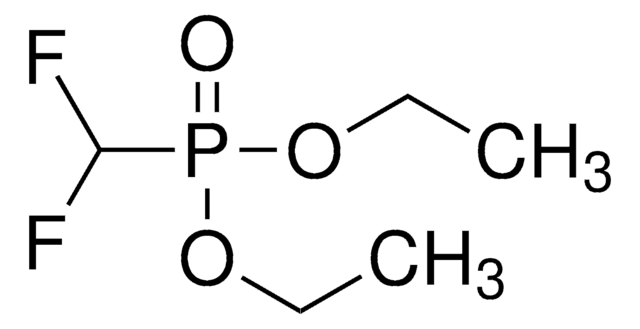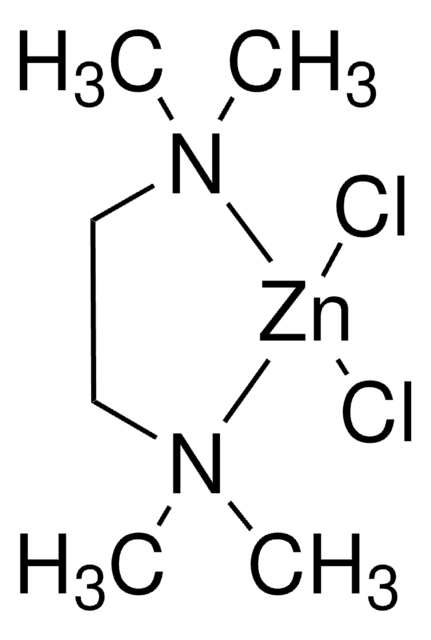744050
(Difluoromethyl)trimethylsilane
≥98.0% (GC)
Synonym(s):
(Trimethylsilyl)difluoromethane, Trimethyl(difluoromethyl)silane
About This Item
Recommended Products
Quality Level
Assay
≥98.0% (GC)
form
liquid
functional group
fluoro
SMILES string
C[Si](C)(C)C(F)F
InChI
1S/C4H10F2Si/c1-7(2,3)4(5)6/h4H,1-3H3
InChI key
OOKFLLNDYNWCHK-UHFFFAOYSA-N
Signal Word
Danger
Hazard Statements
Precautionary Statements
Hazard Classifications
Flam. Liq. 2
Storage Class Code
3 - Flammable liquids
WGK
WGK 3
Flash Point(F)
1.4 °F - closed cup
Flash Point(C)
-17 °C - closed cup
Choose from one of the most recent versions:
Already Own This Product?
Find documentation for the products that you have recently purchased in the Document Library.
Customers Also Viewed
Related Content
Prof. Jinbo Hu's lab focuses on developing new fluorination reagents and reactions, including difluoromethylation and monofluoromethylation.
Prof. Jinbo Hu's lab focuses on developing new fluorination reagents and reactions, including difluoromethylation and monofluoromethylation.
Prof. Jinbo Hu's lab focuses on developing new fluorination reagents and reactions, including difluoromethylation and monofluoromethylation.
Prof. Jinbo Hu's lab focuses on developing new fluorination reagents and reactions, including difluoromethylation and monofluoromethylation.
Our team of scientists has experience in all areas of research including Life Science, Material Science, Chemical Synthesis, Chromatography, Analytical and many others.
Contact Technical Service











